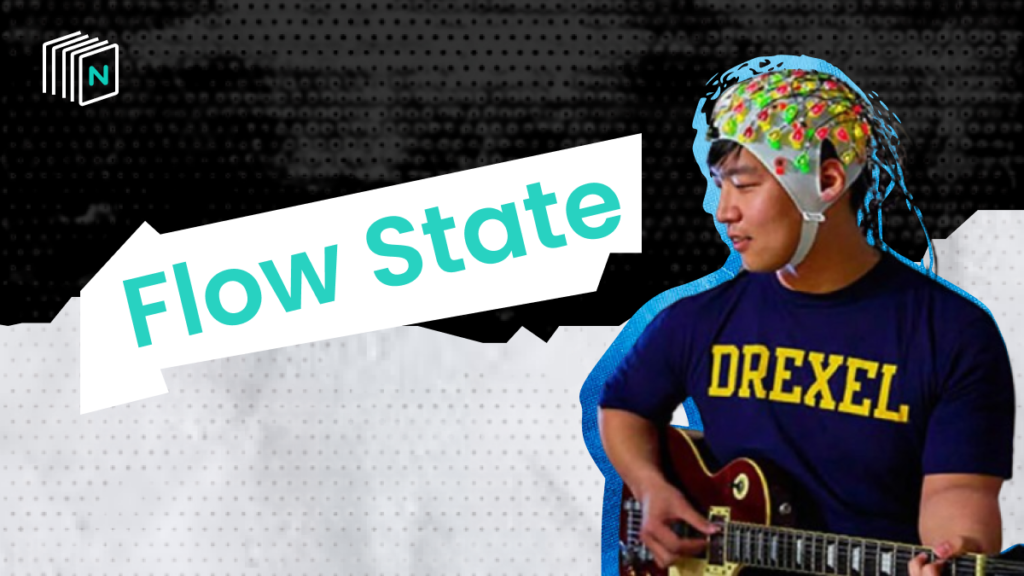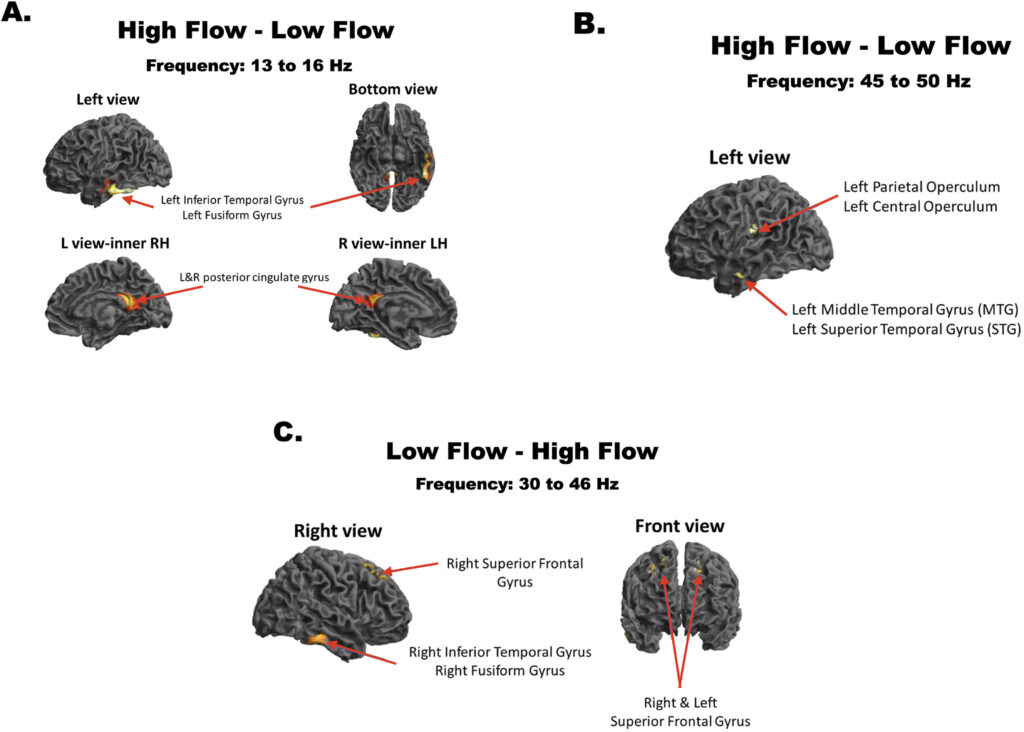Neuroscience of Flow: How Expertise and Letting Go Boost Productivity

The Science Behind Effortless Productivity
Effortless productivity, often characterized as being “in the zone” or experiencing creative flow( Neuroscience of Flow ), is a state sought by professionals across diverse sectors. The recent groundbreaking study by Drexel University’s Creativity Research Lab has delved into the neurological mechanisms underpinning this coveted state, particularly in the context of jazz improvisation—a paradigmatic creative task.
The Study’s Focus: Jazz Improvisation on neuroscience of flow
Led by Professor John Kounios and Dr. David Rosen, the research explored the intricate interplay between expertise and the act of letting go to facilitate creative flow. Contrary to prevailing theories, which often attribute creative flow to hyperfocus or domain-general processing, the study introduced a nuanced understanding. It posited that creative flow is not solely contingent upon intense concentration but also hinges on the capacity to surrender control, allowing a specialized brain network to operate autonomously.
Insights from Jazz Improvisation
Expertise: The Foundation for Neuroscience of Flow
One of the study’s key revelations is the pivotal role of expertise in fostering creative flow. Experienced musicians, the study found, reported experiencing flow more frequently and intensely compared to their less experienced counterparts. This highlights the importance of developing a strong foundation in a particular domain, analogous to building a well-organized library. As expertise grows, the brain gains more efficient access to relevant knowledge, creating the groundwork for effortless flow.
Letting Go: The Art of Uninhibited Creativity
The study sheds light on the importance of letting go during high-flow states. Experienced musicians exhibited decreased activity in the brain’s superior frontal gyri, a region associated with executive control. This implies that during the state of flow, individuals are not actively micromanaging their thoughts; instead, they are relinquishing some degree of control, allowing well-trained brain networks to operate more autonomously. This reduced cognitive control facilitates the seamless flow of ideas and execution of skills.
EEG Findings: A Technical Perspective of Neuroscience of Flow
The study’s utilization of electroencephalograms (EEGs) provided further insights into the neurological processes underlying flow. High-density EEG recordings revealed a distinctive pattern of brain activity during high-flow states. Specifically, experienced musicians exhibited transient hypofrontality—a state characterized by diminished activity in executive control regions of the brain. This reduction in conscious oversight facilitates the uninhibited generation of creative ideas.

The Role of the Default Mode Network (DMN)
Contrary to prior theories, the study found that the brain’s default mode network (DMN), associated with daydreaming and introspection, played a minimal role in flow-related idea generation for experienced musicians. This suggests that, with extensive practice, the brain develops specialized neural circuits dedicated to specific skills and tasks, bypassing the need for extensive involvement from the DMN.
Practical Applications: Cultivating Neuroscience of Flow
The study’s findings have significant practical implications. Two key takeaways for individuals seeking to experience flow more frequently include:
1. Develop Expertise:Dedicate time and effort to honing skills in a chosen domain, creating a foundation for experiencing flow.
2. Practice Letting Go: Once expertise is developed, actively practice letting go of control, trusting the well-trained networks in the brain to take over. Techniques like mindfulness meditation can be helpful in cultivating this ability.
Conclusion: The Power of Expertise and Letting Go
Understanding the interplay between expertise and letting go provides a valuable roadmap for cultivating flow. This research offers insights for individuals seeking effortless productivity and the joy of being “in the zone.” The journey to flow requires both dedicated practice and the willingness to surrender, allowing a well-trained mind to work its wonders. As jazz legend Charlie Parker aptly said, “You’ve got to learn your instrument. Then, practice, practice, practice. And then, when you finally get up there on the bandstand, forget all that and just wail.” This sentiment encapsulates the essence of flow: the culmination of dedicated effort and the willingness to surrender to the joy of creation.
Further Considerations
While the study provides valuable insights into the neural correlates of flow in jazz improvisation, it’s essential to acknowledge its limitations. Flow is a complex phenomenon that can manifest differently across individuals and creative domains. Future research is needed to explore these nuances and develop comprehensive models accounting for diverse factors contributing to this elusive state. Additionally, the study focused on experienced musicians, leaving open questions about whether the same neural mechanisms apply to individuals in other domains. Despite these limitations, the Drexel study contributes significantly to our understanding of flow, paving the way for further investigation and the development of practical strategies for cultivating this coveted state of effortless productivity.

